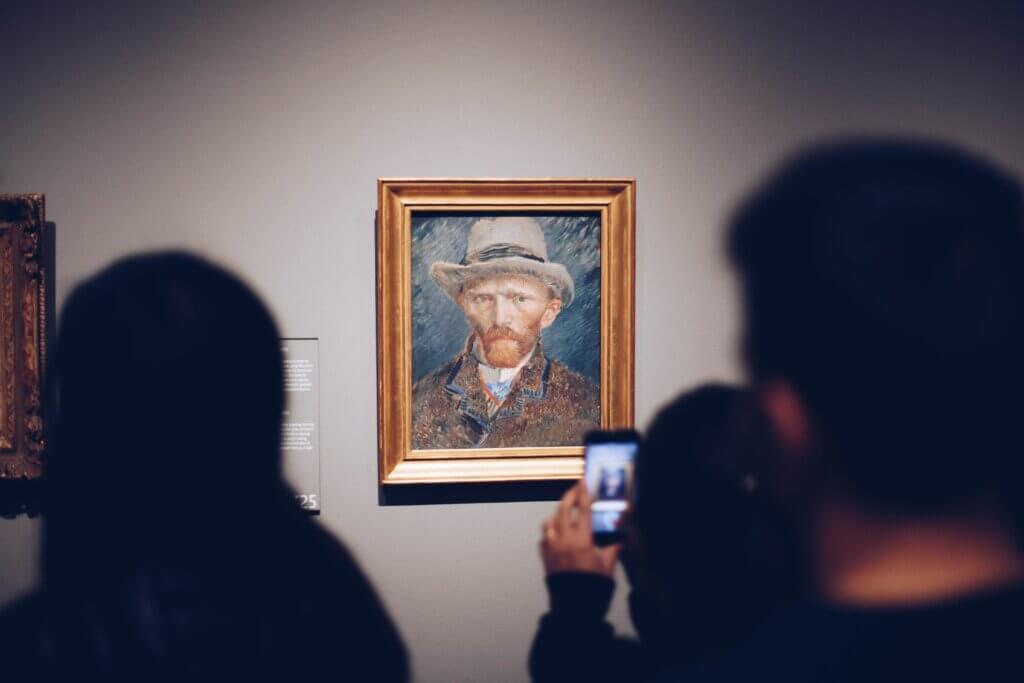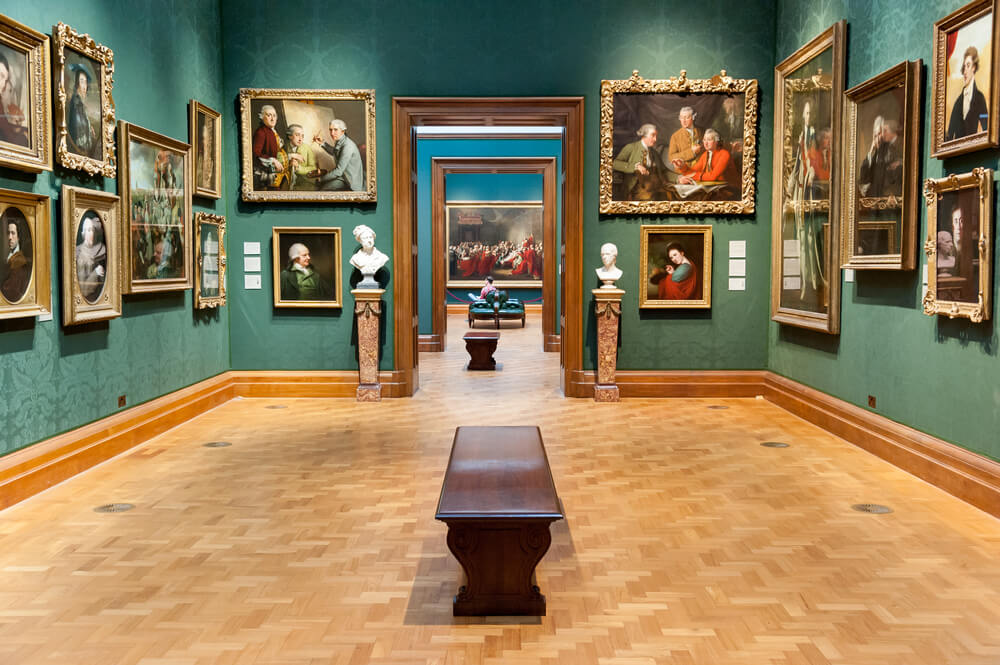What is a Museum Education Officer?
Museum Education Officers (also known as museum learning officers) connect the public with their institutions through official and informal instruction, marketing, public relations efforts, and other channels to inspire curiosity and learning.
Most museums and other similar organisations rely on public donations or revenue from visitors and souvenir sales. So, it’s common for Museum Education Officers to take on additional job roles, such as those of archivists and managers. Museums are dedicated to public access and education. Their Education Officers plan, oversee, and carry out the museum’s plan for getting families and other non-students to participate in various interesting events and activities.
Museum Education Officers can participate in both on-site and off-site programmes. Off-site programmes allow participants to interact with secondary resources at a physically off-site location, such as a school, community centre, or hospital. These “outreach” programmes are intended to engage and encourage people to care about cultural heritage and the arts. The position of a Museum Education Officer may be extremely fulfilling. It allows you to work with individuals of diverse ages and backgrounds and to teach them about art, history, science, and other disciplines. This position also allows you to establish your own teaching style and provide your students with unique learning experiences.
Responsibilities
Some of the responsibilities that you may have as a Museum Education Officer include:
- Conceptualising, designing, and implementing educational programmes for school groups, families, and the general public that are consistent with the museum’s mission, aims, and objectives.
- Assisting instructors, students, and parents as a resource by offering programme information and curricular resources.
- Collaborating with other educators, curators, and museum employees to create unique programmes that engage a wide range of people.
- Evaluating the efficacy of the programme and giving suggestions for improvement.
- Training, managing, and evaluating volunteer docents and interns. -Establish and maintain excellent relationships with essential partners such as school district staff, community groups, and funding sources.
- Writing proposals and reports as needed
- Remaining current on current research and trends in the field of museum education
- Attending professional development workshops and conferences as needed
- Performing administrative tasks as needed, such as maintaining programme records and ordering supplies
- Assisting with exhibit design and installation as needed -Assist with marketing and public relations efforts to promote the museum and its programmes
Salary
The salary for Museum Education Officer is influenced by their employer, experience and geographic location The projected UK salary for a Museum Education Officer is £25,334 per year. Salaries range from £17,000 to £38,000. The estimated London salary for a Museum Education Officer is £32,875 per year. Salaries range from £22,000 to £50,000.
Working hours and work location
Your working hours as a Museum Education Officer will be based on the hours that the museum, gallery, or historical site you work at is open to the public. As a result, during busy times like summer and winter breaks from school, you might have to put in more hours at the office.
Some of the most common employers for Museum Education Officers include:
- Local authorities.
- Independent museums and galleries.
- Universities.
- Private collectors.
As a Museum Education Officer you might be headquartered in a single museum or halfway between a variety of neighbouring layouts. Regardless, local travel for outreach or to attend meetings and exhibits is common.
What to expect
If you can create and communicate a unique and valuable programme of teaching to adults and children, you will find success in a career as a Museum Education Officer. As a Museum Education Officer, your job is to make sure that people can learn from a museum’s collections. You can create and carry out high-quality, dynamic learning and support programs for classes, groups, or individuals. Various programs are designed to reach out to those who may not normally visit a museum or exhibition, such as hard-to-reach children, small children, older people, and families. You can work at exhibits, museums, or in your community.
The workplace varies depending on the type of museum. Depending on how big the museum or show is, you may be the only person in charge of education or you may be part of a group that helps people learn. Even though there are a lot of opportunities in big cities and towns, there are also independent and expert museums in small towns and rural areas. Temporary and short-term contracts are common, lasting anywhere from a few months to five years. Nonetheless, organisations such as the Museums Association (MA) are actively working to extend access and opportunities through diversifying staff, volunteers, and visitors.
As a Museum Education Officer, you must interact with the general public. To do this, you will need to create a learning system that adheres to the museum’s ethos and nurture projects of talks, exercises, and workshops centred on certain displays, subjects, or seasonal festivities. You may eventually collaborate with schools, colleges, and educators to enhance the use of the museum’s collections and activities as part of the public education programme. You may have to train museum instructors to teach class groups in accordance with the school prospectus, as well as create and develop educational assets for visitors, schools, families, and other stakeholders. If you work in this field, you can expect that a typical day will involve giving lectures, tours, workshops, seminars, and supervising practical demonstrations, as well as teaching others. As a Museum Education Officer you’ll also be in charge of mentoring junior staff members and organising volunteer efforts. You may be responsible for a variety of tasks outside direct instruction, such as public relations, exhibit maintenance, and the organisation of classroom supplies and
Qualifications
Though experience is valued more than education, museum educators are more likely to get employment if they have a degree in museum education. Relevant fields of study include archaeology, museum studies, education studies, art history, and history. Some companies, especially big national museums, look for people with education degrees and relevant paid or unpaid work experience.
Skills
must have skills:
To become a Museum Education Officer, you will need to have or learn some of the following skills:
- Superior abilities in both spoken and written expression.
- Preference for and familiarity with artefacts from the past.
- Superb abilities in project management, organisation, and public speaking.
- A familiarity with securing financial support for artistic endeavours.
- IT and database skills necessary for a museum job.
- Competence in collaborating effectively with others.
- Capacity for in-depth investigation
- .A passion for art and history
- Excellent organising and presenting abilities
- Excellent teamwork abilities
- Strong interpersonal skills
- A reasonable level of inventiveness
- A desire to share information with others
- Excellent computer skills

Work experience
To become a Museum Education Officer, you can get training and hands-on experience by participating in a volunteer programme at a public gallery, museum, or National Trust property. You can learn more by contacting the volunteer coordinators at the organisations you are considering applying to.
If you are interested in volunteering at a museum, a quick internet search should turn up several results. On the other hand, you might decide to send out more general, although still speculative, applications to local museums, galleries, and cultural sites. You can visit the Museums Association online database to look for relevant contact information. The Group for Education in Museums (GEM) is an organisation that provides its members with several advantages, such as the chance to expand their professional network, acquire new skills, and receive a subscription to the Journal of Education in Museums once a year. Another option is becoming a Museums Association (MA) member. Students can join either group at a discounted fee.
Career prospects
Museums and other cultural organisations are constantly looking for new methods to engage people and raise their profile in the community. This should result in a sustained need for museum educators who assist in the planning and implementing of new programmes and activities.
There might not be many opportunities for advancement, therefore, if you want to advance in your current position, you could have to relocate to a different museum or city. Museum workers often have to take charge of their professional development, which might include taking on various temporary jobs, including freelancing and consulting. Workers in the visual arts, at the executive, or at the expert technical level, may also switch industries. When promoted further, you are more likely to take on a larger managerial role, such as the director of the museum or the head of the department of leisure and cultural services. You would interact less often with the public and local organisations in these positions.
Museum educators may move to positions of administration within their institution, such as education coordinator or education director. Museum educators with expertise may rise to high administrative roles, such as museum directors. Some museum educators may also opt to work as independent consultants on education programmes and displays for several institutions.
Related Courses
MEd Education Studies (Specialism)
An advanced degree in Education Studies, such as the Master of Education (MEd) degree offered by the University of the West of Scotland London, is a fantastic way to improve your employment prospects in the field of Museum Education. Students with a background in Education Studies can take this specialised course that lasts one year to hone in on specific research interests while still getting an overview of the field.





